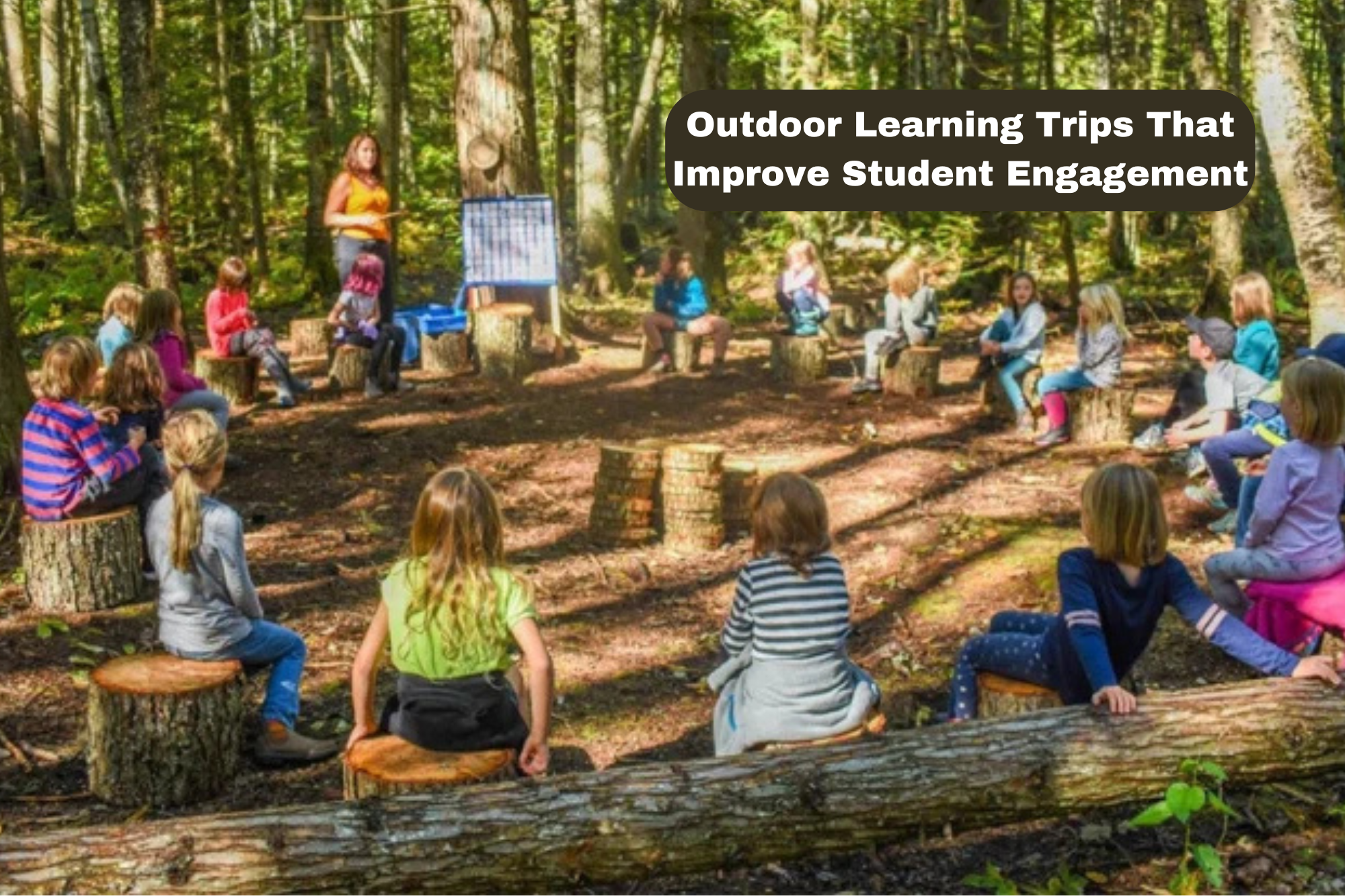Share this Post
Outdoor learning trips are an effective way to boost student engagement by providing hands-on experiences beyond the classroom.
These excursions help students develop critical thinking skills, enhance creativity, and improve their understanding of real-world applications of their studies.
Schools that incorporate outdoor learning experiences see better retention rates, increased participation, and a deeper interest in various subjects.
This article explores more than 10 outdoor learning trips that significantly improve student engagement and how they contribute to overall academic and personal development.
1. Science and Nature-Based Excursions
a) National Parks and Nature Reserves
- Allows students to explore ecosystems, biodiversity, and conservation efforts firsthand.
- Encourages appreciation for wildlife and the environment.
b) Botanical Gardens and Arboretums
- Helps students understand plant biology, climate impact, and sustainable practices.
- Provides hands-on experience in conservation efforts.
c) Geological Field Trips
- Includes visits to caves, rock formations, and fossil sites.
- Enhances knowledge of earth sciences, plate tectonics, and natural history.
d) Wildlife Sanctuaries and Zoos
- Offers a closer look at animal behavior, conservation strategies, and endangered species.
- Encourages discussions on ethical treatment and environmental responsibility.
2. Historical and Cultural Learning Trips
a) Museums and Heritage Sites
- Provides historical context through artifacts, documents, and exhibitions.
- Engages students with interactive displays and guided tours.
b) Battlefields and War Memorials
- Offers firsthand understanding of historical conflicts and their impact on society.
- Helps students connect with historical narratives beyond textbooks.
c) Archaeological Sites and Ruins
- Encourages exploration of past civilizations and architectural advancements.
- Hands-on excavation activities can deepen learning experiences.
d) Cultural Villages and Indigenous Learning Centers
- Teaches students about indigenous traditions, storytelling, and craftsmanship.
- Promotes cross-cultural understanding and appreciation.
3. Adventure and Leadership Training Excursions
a) Outdoor Adventure Camps
- Includes activities like rock climbing, canoeing, and team-building exercises.
- Helps develop problem-solving skills and resilience.
b) Hiking and Trekking Expeditions
- Encourages fitness, navigation skills, and environmental awareness.
- Builds perseverance and teamwork.
c) Agricultural and Farm Visits
- Demonstrates sustainable farming techniques, food production, and animal care.
- Encourages discussions on food security and climate change.
4. Industry and Technology-Based Educational Trips
a) Space Centers and Planetariums
- Introduces students to astronomy, space exploration, and physics concepts.
- Encourages STEM careers through hands-on simulations and exhibits.
b) Science and Innovation Hubs
- Showcases groundbreaking scientific discoveries and technological advancements.
- Includes robotics labs, renewable energy centers, and AI research institutes.
c) Factories and Industrial Sites
- Provides insights into manufacturing processes, engineering, and supply chains.
- Encourages innovation and entrepreneurship among students.
5. Community and Social Service Learning Trips
a) Environmental Clean-Up Initiatives
- Encourages responsibility and civic engagement through recycling projects and clean-up drives.
- Enhances awareness of pollution and sustainability.
b) Volunteering at Orphanages and Senior Homes
- Promotes empathy and compassion among students.
- Encourages active community involvement and service learning.
c) Food Banks and Homeless Shelters
- Provides real-world insight into social inequalities and the importance of charity.
- Helps students develop leadership skills through fundraising and volunteer work.
Conclusion
Outdoor learning trips bridge the gap between theoretical knowledge and real-world application, making education more engaging and meaningful.
Whether exploring nature, history, technology, or community service, these excursions provide students with hands-on learning experiences that enhance academic performance, social skills, and personal growth.
Schools should incorporate outdoor trips into their curriculum to create a holistic and dynamic learning environment for students of all ages.





